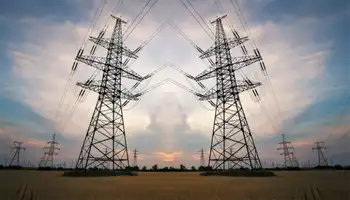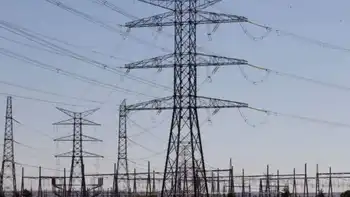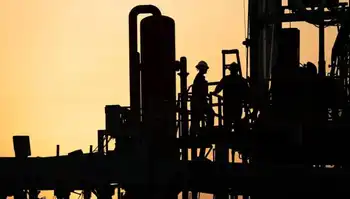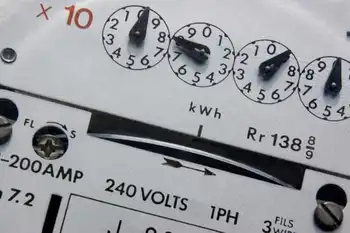Series of mishaps casts doubt on Swedish nuclear plants
FORSMARK, SWEDEN - The discovery of serious safety problems at one of Sweden's three nuclear power plants has thrown the country's energy model into question.
It was reported recently that low-level radiation leaks at a reactor north of Stockholm went undetected for three years, and the leaks were only the latest in a series of mishaps.
The problems at Forsmark, a plant with three reactors about 200 kilometers, or 125 miles, north of Stockholm, surfaced with a serious incident on July 25 last year. Two of four backup generators, designed to control the shutdown of one of the reactors, malfunctioned during a power failure.
The two remaining generators shut down the reactor. But the incident exposed a serious vulnerability, with some analysts arguing that the outcome was a matter of luck and that a serious accident - even a meltdown - could have happened.
"It's a bit like a lottery," Lars-Olov Hoglund, an engineer who was involved in the construction of the Forsmark plant in the 1980s, said after the July failure. Although two generators kicked in, he said, it could have been one, or none.
But the management of the plant, as well as the Swedish nuclear power inspector agency, SKI, played down the seriousness of the incident, saying that all problems could be dealt with. After an initial rush of interest in the Swedish and international media, the matter died down.
Last month, however, a highly critical internal report from Forsmark was reported on a Swedish television show. The report criticized what it called an "extensive and profound degradation" of the safety culture, describing, among other things, how an alcohol test of 25 workers at the plant resulted in three being sent home for drunkenness.
It also found that the July incident had "not marked a decisive turn to the better."
Signs of trouble have continued to pile up. A few days after the report became public, SKI asked prosecutors to investigate whether the operator of Forsmark had broken the law in its response to the July incident. Then two of Forsmark's reactors were shut down after a seal in one of them was found to be defective. The authorities said that one reactor would remain closed. Just recently, the managing director of Forsmark, Lars Fagerberg, resigned abruptly. "What bothers me most is that we've all been so naive," said Bjorn Karlsson, a professor of energy systems at Linkoping University, who also advises the Swedish government on nuclear security.
"If someone had told me a year ago that the security culture could degenerate this much at a Swedish power plant, I would have replied that it's not possible."
Lennart Daleus, the secretary general of Swedish Greenpeace, said, "It's almost like a farce, with all this happening one thing after another. There has been a myth here that Swedish nuclear power is safer than in other countries, but now that's been proven wrong."
Greenpeace is one among a growing number of voices calling for a thorough, outside review of Sweden's 10 reactors, and the Swedish government recently decided to send a request to the International Atomic Energy Agency to inspect the safety at Forsmark.
Daleus said he was certain that such a review would show that the Swedish reactors - the first built in the early 1970s, and the last in 1985 - were outdated and would have to be closed.
"These reactors are old," he said. "We're living dangerously."
Sweden has a long and complicated history with nuclear technology. Although a majority in a 1980 referendum voted to phase out nuclear power by 2010, the country remains heavily dependent on it. Sweden uses practically no Russian natural gas and has cut greenhouse gas emissions by more than 10 percent in the past decade.
Recent opinion polls show that the country is divided when it comes to nuclear power. A telephone poll of 1,000 Swedes conducted Feb. 5-8 and published in the daily Svenska Dagbladet, showed that 21 percent have become more skeptical of nuclear power because of the problems at Forsmark. But 58 percent still think that the nuclear power system should remain as it is today, or should even be extended.
The recently elected center-right government has said there are no plans to either reduce or expand Sweden's nuclear capacity, even if the recent events are taken into account, according to Ola Altera, state secretary at the Ministry for Enterprise, Energy and Communications. But even if no political decisions are to be expected soon, a hint of doubt is unmistakable.
"It is easy to believe that it's a quick fix to the climate problem," Altera said. "But nuclear power is vulnerable, and what happened last summer was not very good."
Related News
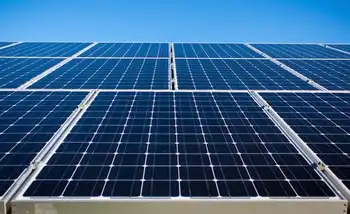
ABO to build 10MW Tunisian solar park
TUNISIA - ABO Wind has received a permit and a tariff for a 10MW photovoltaic project in Tunisia which it plans to build and commission in 2020.
The solar park, in the governorate of Gabes, is 400km south of the country’s capital Tunis.
The developer said it plans to build the project next year in close cooperation with local partners.
ABO Wind department head Nicolas Konig said: “The solar park will produce more than 18 million kilowatt hours of electricity per year and will feed it into the grid at a distance of 2500 metres.”
The developer will conclude an electricity supply contract with…

